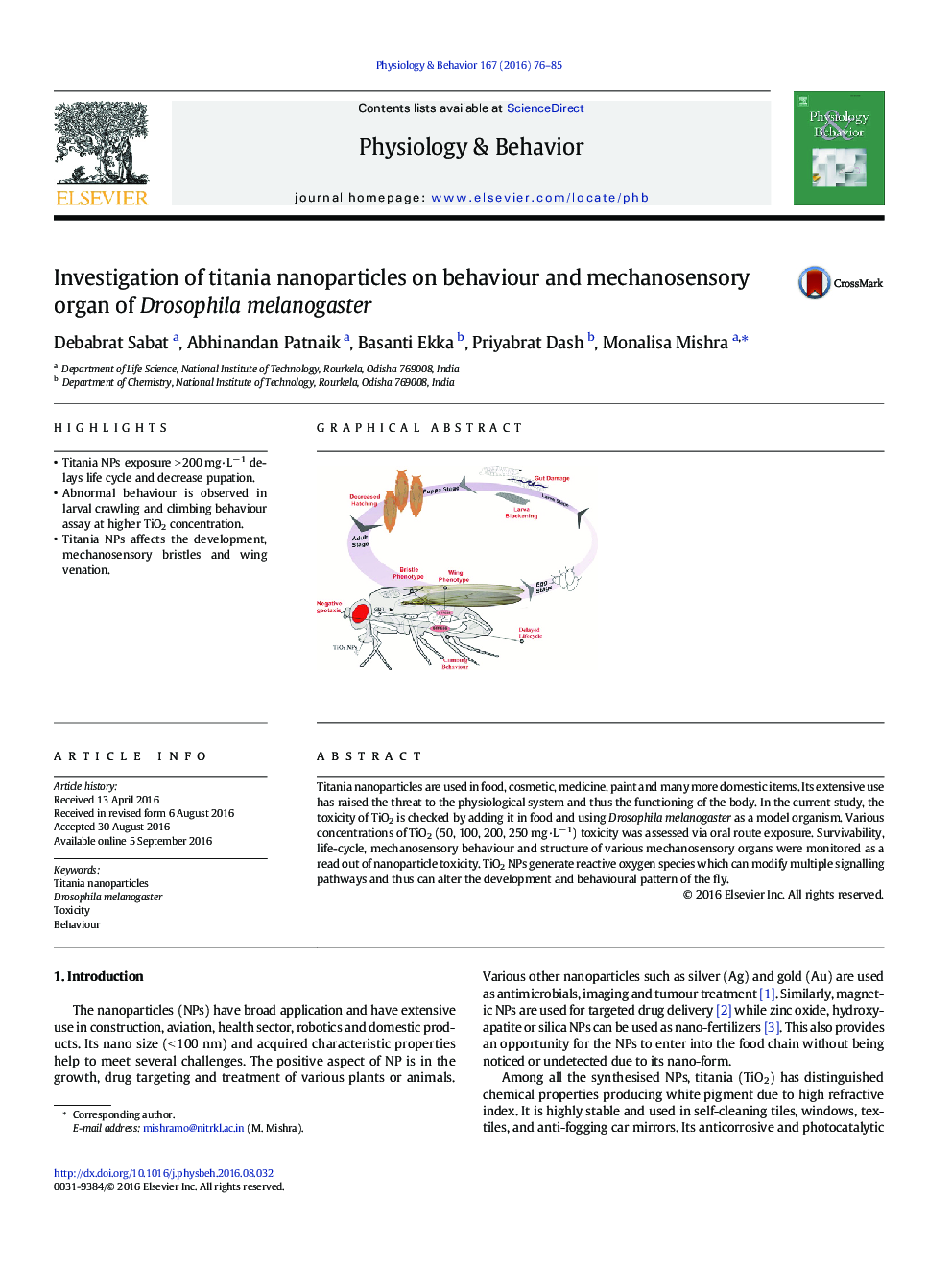| Article ID | Journal | Published Year | Pages | File Type |
|---|---|---|---|---|
| 5922478 | Physiology & Behavior | 2016 | 10 Pages |
â¢Titania NPs exposure > 200 mg·Lâ 1 delays life cycle and decrease pupation.â¢Abnormal behaviour is observed in larval crawling and climbing behaviour assay at higher TiO2 concentration.â¢Titania NPs affects the development, mechanosensory bristles and wing venation.
Titania nanoparticles are used in food, cosmetic, medicine, paint and many more domestic items. Its extensive use has raised the threat to the physiological system and thus the functioning of the body. In the current study, the toxicity of TiO2 is checked by adding it in food and using Drosophila melanogaster as a model organism. Various concentrations of TiO2 (50, 100, 200, 250 mg·Lâ 1) toxicity was assessed via oral route exposure. Survivability, life-cycle, mechanosensory behaviour and structure of various mechanosensory organs were monitored as a read out of nanoparticle toxicity. TiO2 NPs generate reactive oxygen species which can modify multiple signalling pathways and thus can alter the development and behavioural pattern of the fly.
Graphical abstractDownload full-size image
